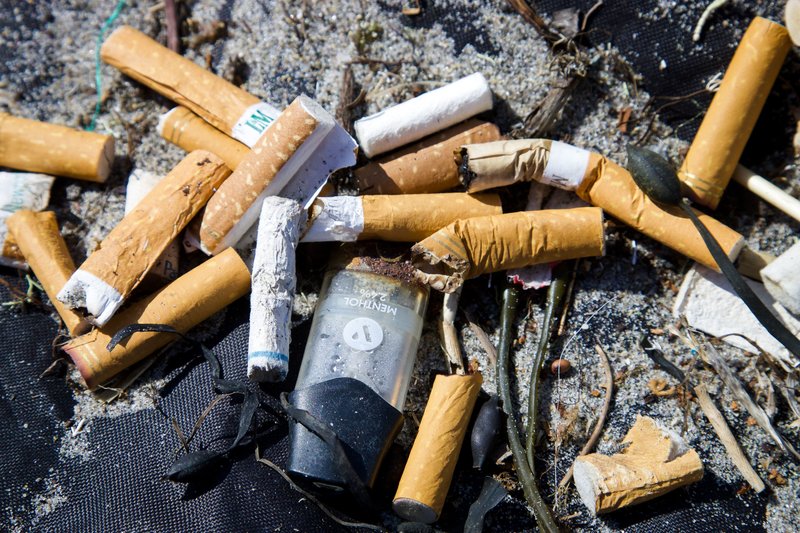Published at 06 September, 2023 15:06.

The simple answer is yes. The environmental degradation caused by smoking is multifaceted, touching upon various aspects of our ecosystem.
While the health repercussions of smoking are widely recognised, its environmental footprints remain relatively under-discussed. It's not just about the smoker – the planet is gasping for breath too.
The environmental devastation caused by smoking can be broken down into several categories:
In the UK alone, an estimated 4.5 trillion cigarette butts are discarded annually. These litter our streets, green spaces, and other public areas, representing not just an eyesore but also a source of environmental pollution.
Cigarette filters, contrary to popular belief, do not just disappear over time. They are made from cellulose acetate – a plastic that can persist in the environment for up to a decade. As they decompose, they leach toxic chemicals, further polluting their surroundings.
Beyond the unsightliness of cigarette butts littering urban landscapes in the UK, they pose a tangible threat to terrestrial ecosystems. The chemicals they release can contaminate the soil, rendering it less fertile and harmful to plant life.
The UK, with its expansive coastlines, sees many cigarette butts ending up along its shores. Here, they release toxins such as nicotine and heavy metals, which are known to be harmful to marine organisms. Coastal clean-ups often retrieve staggering amounts of cigarette litter, underscoring the scale of this issue.
Every puff of a cigarette releases thousands of chemicals into the atmosphere. Urban centres like London, already grappling with air pollution, are further burdened by smoking, exacerbating the problem and amplifying health risks.
UK water systems are threatened by discarded cigarette butts. As they enter rivers and streams, they introduce many toxic substances, jeopardising freshwater ecosystems and eventually affecting marine life.
While the environmental issues caused by the end product are staggering, the production phase of cigarettes is equally concerning. For every 300 cigarettes produced, one tree is sacrificed. Large areas of forests, often in biodiversity-rich regions, are cleared for tobacco cultivation. This deforestation contributes to climate change, reduces biodiversity, and displaces communities dependent on these forests.
Animals, too, bear the brunt of our smoking habits. Pets in smoking households face increased risks of health issues, mirroring the problems humans face – cancers, respiratory difficulties, and more. Moreover, the urban wildlife across the UK – from birds perched on our window sills to squirrels darting around our gardens – are exposed to the remnants of cigarettes and second-hand smoke, leading to potential health complications.
As we delve deeper into the query "How bad is smoking for the environment?" we uncover a narrative of vast environmental degradation. From land pollution to aquatic threats, deforestation to endangered wildlife, the footprint of smoking extends far beyond human health.
It's high time we address this. As the UK continues its fight against smoking, with dedicated organisations like 'Yorkshire Smokefree' at the forefront, it becomes imperative to recognise and communicate the broader environmental repercussions. Our fight against smoking and the help we offer isn't just for our personal health; it's a battle for the planet's well-being.
Contact our friendly, non-judgemental team today to find out more.